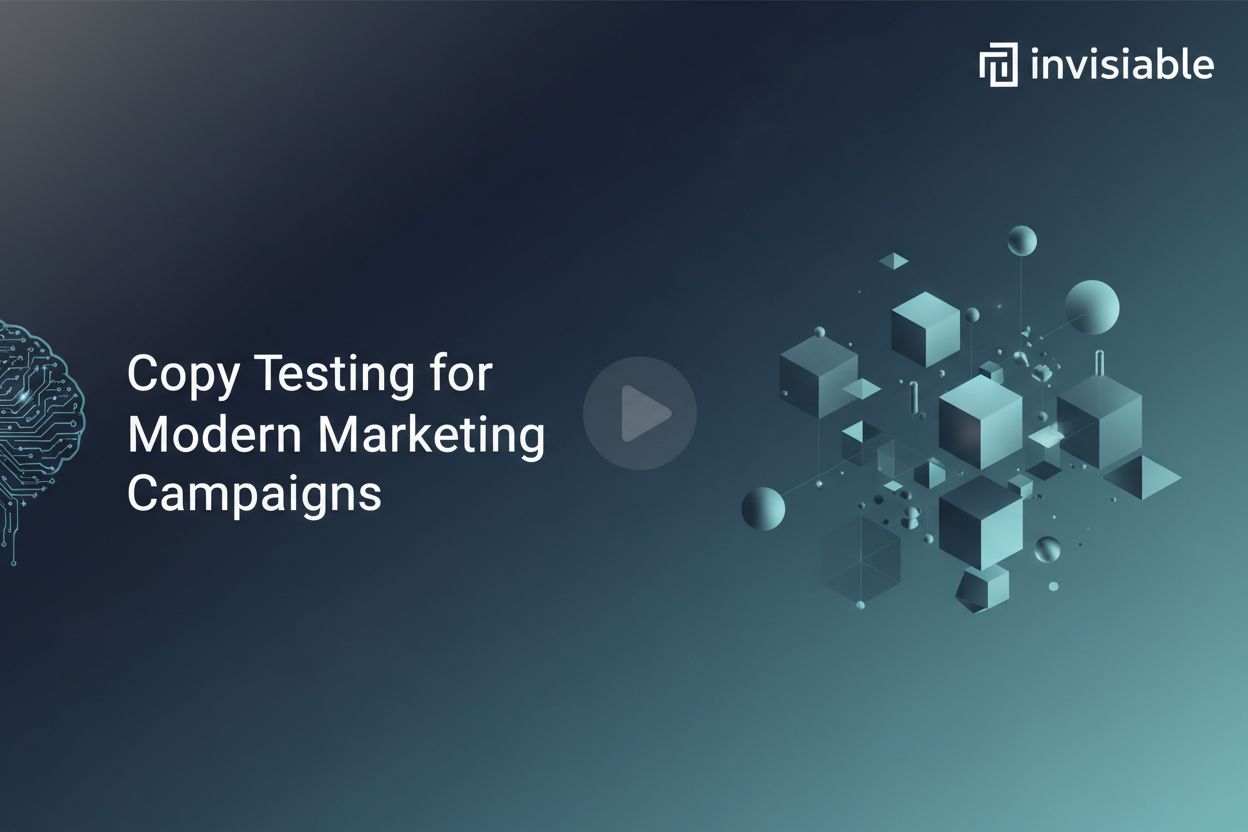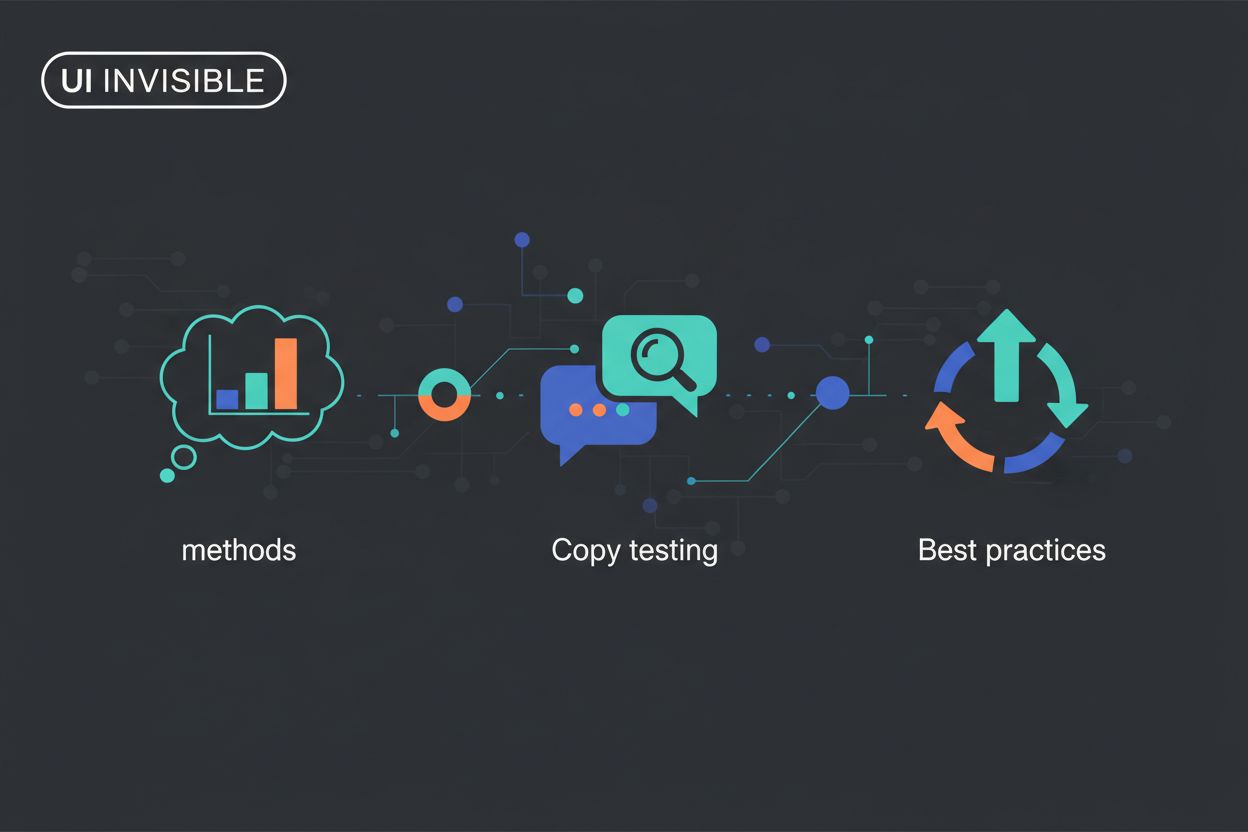AI-Driven Content Personalization: The Future of Marketing
The Rise of AI-Powered Content Personalization
Picture this: every single marketing message you get feels like it was made just for you. That's kinda the dream with ai-powered content personalization, and it's happening faster than you think.
- People today really expect stuff to be personalized. Like, a lot. According to IBM, 71% of consumers want companies to actually deliver personalized content. (Unlocking the next frontier of personalized marketing - McKinsey)
- And get this, personalization makes a huge difference in whether people buy stuff. Studies show that 80% of consumers are more likely to buy from brands that offer personalized experiences, which BrandXR cites as a big deal for tailored interactions.
- On the flip side, if content isn't relevant, people get annoyed. BrandXR also points out that 42% of consumers get frustrated when content isn't relevant to them.
So, how's this all happening?
- Ai makes hyper-personalization possible, even for tons of people. It can look at massive amounts of data super fast, way more than anyone could do manually, as BrandXR explains.
- Ai algorithms can actually create custom content on their own. These algorithms can whip up tailored text, images, and even product suggestions, giving everyone a unique experience, according to BrandXR.
- This means brands can talk to millions of people, but it feels like they're talking to each person one-on-one, across all sorts of digital channels and even beyond, BrandXR mentions.
Marketers are totally on board with this too.
- BrandXR reports that 59% of marketers are already using ai to make their personalization better.
- And get this, 80% of marketers think ai is going to totally change marketing by 2025, according to BrandXR.
- New tech like generative ai and hyper-personalization are set to really shake things up, creating dynamic and custom user experiences.
Now that ai is becoming so important, it's pretty key to get how it's used in real life, which brings us to what's next.
How AI Personalization Improves Key Marketing Metrics
Did you know marketers say they see a 25% boost in ROI from ai-powered personalization? Let's dig into how ai personalization really makes marketing metrics better all around.
Ai-driven personalization isn't just some trendy phrase; it's a serious money-maker.
- Marketers report a 25% lift in ROI from ai-powered personalization, as noted in a 2024 report.
- Companies using ai-driven personalization have seen their sales go up by about 20%.
- Personalized suggestions can actually drive a big chunk of e-commerce sales. For example, it's estimated that 35% of Amazon’s revenue comes from its ai-based product recommendations, as mentioned in a report.
Ai's impact goes way beyond just sales, changing how customers interact with your brand big time.
- Ai personalization leads to 2x higher customer engagement rates, making interactions feel more meaningful.
- Businesses that use ai personalization get 1.7x higher conversion rates, turning interest into actual purchases.
- Personalized emails can get 6x higher transaction rates compared to those generic, non-personalized ones.
Keeping customers is just as important as getting them in the first place, and ai is great at building those long-term relationships.
- Ai-driven personalization is linked to a 28% drop in customer churn rates, which really helps build brand loyalty.
- Personalization can bump up customer satisfaction scores by as much as 30%, making customers feel like they're actually valued.
- Customers who get personalized content are way more likely to buy again. Studies show that 78% of consumers prefer to buy again if they get personalized content.
As ai keeps getting better, understanding how it's used in creating content becomes super important, which leads us to the next section.
Practical Applications of AI-Driven Content Personalization
Imagine talking to a virtual assistant that knows your preferences better than you do. Let's get into the real ways ai-driven content personalization is changing marketing right now.
Ai algorithms look at browsing and buying history to show customers the products that are most relevant to them. This is more than just showing popular stuff; it's about understanding what each person actually needs and wants.
For instance, an online store might look at a customer's past purchases of hiking gear and then suggest a specific brand of hiking boots that's known for being tough. This really helps boost the average order value and conversion rates.
Smart virtual assistants are changing customer support by giving help that's aware of the context. Using natural language processing (NLP) and tons of user data, these assistants can understand and answer customer questions really accurately.
As IBM notes, ai tools can connect with consumers at every point in their journey, from browsing an online store to getting follow-up messages about a product or service.
This means faster responses and happier customers, which leads to more loyalty.
Think about a world where every website visitor sees a different version of your content, all tailored to what they're interested in. Generative algorithms are making this happen by customizing text, images, and even video clips on the fly.
This makes sure every visitor sees messages that match their interests and boosts engagement.
For example, Coca-Cola used ai to create dynamic marketing content, personalizing ad visuals and messages based on what consumers like and what's trending in different areas.
By understanding these real-world uses, marketers can use ai to create campaigns that are more engaging and effective. Next, we'll look at how ai-driven personalization is changing customer service and support.
Tools and Technologies for Implementing AI Personalization
Ai-driven personalization is changing marketing, but what tools do you actually need to make this happen? Let's dive into the technologies that help marketers create truly personalized experiences.
To really use the power of ai personalization, marketers need the right tools. These technologies let you analyze customer data, create engaging interactions, and deliver content that actually matters.
- Machine learning algorithms are the core of it all, looking at huge amounts of customer data to find patterns and preferences. These algorithms help marketers understand what makes customers tick and then tailor experiences. For example, stores can use machine learning to guess which products a customer is most likely to buy.
- Natural language processing (NLP) is what makes chatbots work smoothly. NLP lets chatbots understand what customers are asking, give good answers, and even suggest personalized things. This tech is super important for giving customers smooth and engaging service experiences.
- Recommendation engines and collaborative filtering are key for suggesting content that's relevant. Recommendation engines look at what users do to suggest products, articles, or services that fit their interests. Collaborative filtering makes this even better by considering what similar users like, creating a stronger and more personalized recommendation system.
Good data management is absolutely essential for successful ai personalization. The right tools make sure data is accurate, safe, and easy to get to.
- Customer Data Platforms (CDPs) bring together customer data from all sorts of places, creating one complete picture of each customer. This unified data lets marketers give consistent and personalized experiences everywhere. CDPs pull data from things like CRM systems, email marketing platforms, and social media.
- Data quality management tools make sure your data is accurate and reliable, which is crucial for ai personalization to work well. These tools clean up, check, and organize data, making sure ai algorithms are working with good information. Keeping data clean leads to better insights and better personalization results.
- Data encryption and secure protocols keep user data safe from people who shouldn't have access. Using strong security measures is vital for building customer trust and following data privacy rules. Secure protocols make sure data is sent and stored safely, lowering the chance of breaches.
Personalized experiences need content that changes based on what individuals like. Content creation and management platforms give you the tools to create and deliver this content efficiently.
- Generative ai tools create unique user experiences by making personalized content in real-time. These tools can produce custom text, images, and even videos, making sure each user sees content that really connects with them. Generative ai lets marketers create really engaging and relevant experiences for lots of people.
- Dynamic content optimization (DCO) platforms let you change content on the fly based on what users are doing. DCO platforms analyze user data and automatically adjust website content, email messages, and other marketing stuff to get the most engagement and conversions. This makes sure content is always relevant and optimized for each person.
- Content management systems (CMS) that can handle dynamic content and give you performance data are a must. A CMS with dynamic content features makes it easy for marketers to create, manage, and deliver personalized experiences. Performance data gives you insights into what content works best with users, letting you keep making things better.
Getting yourself equipped with these tools is the first step to unlocking the potential of ai-driven personalization. Next, we'll look at how you can measure the success of your ai personalization efforts.
Best Practices for Successful AI Personalization
Doing ai personalization right isn't just about using the newest tech; it's about doing it responsibly and ethically. Let's go over some best practices to make sure your ai personalization efforts are both effective and ethical.
Navigating the ethical side of ai personalization is super important for keeping customer trust and following the rules.
- Follow GDPR, CCPA, and other data protection rules. Making sure your ai systems stick to these rules isn't just a legal thing, it shows you care about protecting customer data, as mentioned earlier.
- Get customer permission to use their data and anonymize it when you can. Getting clear consent and using anonymization techniques can help ease privacy worries while still letting you personalize effectively.
- Be upfront with customers about how their data is used. Being transparent builds trust and helps create a good relationship with your customers, making them more open to personalized experiences.
Measuring how well your ai personalization efforts are working is key to showing value and making your strategies better.
- Set clear metrics (like conversion rate, engagement, retention). Having specific, measurable, achievable, relevant, and time-bound (SMART) metrics will give you a clear idea of how you're doing.
- Use A/B testing to see the improvement from ai personalization. A/B testing lets you compare how personalized experiences do compared to control groups, giving you solid proof of the impact of your work.
- Start with small tests and then put more money into it as you see value. This way, you can test and fix your strategies before you commit a lot of resources, which lowers risk and boosts ROI.
Putting ai personalization into practice can be tricky, but tackling the main challenges can help you succeed.
- Deal with scaling issues by using cloud computing. Cloud computing gives you the infrastructure and resources you need to scale your ai personalization efforts as demand grows.
- Get transparency by using explainable ai. Explainable ai (XAI) helps make the decision-making of ai algorithms clearer, building trust and letting you spot and fix any potential biases.
- Don't over-personalize by balancing personalized experiences with general content. Finding the right balance makes sure customers feel understood and valued without feeling overwhelmed or like their privacy is being invaded.
- Invest in a skilled team and use up-to-date technologies. Having a team with the right skills and using the latest technologies are really important for successful implementation and ongoing improvements.
By following these best practices, you can use the power of ai personalization while staying ethical and getting real results. Next, let's look into the ethical considerations and best practices for ai personalization.
AI Personalization in Specific Industries
Ai-driven personalization is really changing industries, creating custom experiences that connect with individual customers. But how does this actually work in different sectors?
E-commerce businesses use ai to give personalized product recommendations based on a customer's browsing and buying history.
- Algorithms look at past behavior to suggest items a user might buy, making the shopping experience better and increasing sales.
- Dynamic pricing changes product prices in real-time based on demand, what competitors are charging, and what individual customers are doing. This makes sure offers are competitive and maximizes revenue.
- Personalized email marketing campaigns send custom content, offers, and product suggestions based on customer preferences and past interactions. This boosts engagement and drives conversions.
The media and entertainment industry uses ai to curate content and make users more engaged.
- Streaming services like Netflix and Spotify offer customized content suggestions based on what you've watched or listened to. This keeps users interested with relevant media and reduces them leaving the service.
- Ai powers personalized news feeds and article recommendations, making sure users get content that matches their interests. This increases the time spent on the platform and builds loyalty.
- Interactive stories and personalized gaming experiences change based on what users choose and prefer, creating unique and immersive entertainment. This improves user satisfaction and encourages repeat engagement.
In the finance world, ai offers tailored advice and help to customers.
- Customized financial advice and investment recommendations are offered based on a user's financial goals, how much risk they're comfortable with, and what's happening in the market. This helps users make smart decisions and reach their financial goals.
- Personalized banking experiences and fraud detection make things safer and more convenient. Ai looks at transaction patterns to find and stop fraudulent activity, giving customers peace of mind.
- Ai-powered chatbots for customer support give instant and personalized help, answering questions and solving problems quickly. This improves customer satisfaction and lowers operating costs.
As ai keeps getting better, these uses will become even more advanced, offering more and more personalized experiences across different industries. Next, we'll look at the ethical considerations and best practices for ai personalization.
The Future of Content Personalization with AI
Ai-driven personalization isn't just a fad; it's the future of marketing! How can businesses get ready for this fast-changing landscape?
Hyper-personalization will use real-time data and ai to give really custom experiences.
Omnichannel personalization aims to give consistent experiences everywhere you interact with a brand. Think about how Sephora really uses its app to bring together data points for each customer, as mentioned earlier.
Generative ai will make it possible to create personalized content for lots of people, making tailored experiences more efficient.
Transparency in how ai makes decisions will be super important for building trust with customers.
Bias mitigation in ai algorithms will make sure everyone gets fair and inclusive experiences.
Focus on creating value and making sure it lines up with business goals to get meaningful results.
Invest in data infrastructure and ai talent to set the stage for successful personalization.
Adopt a "try and learn" approach to keep improving your strategies and get the most ROI.
Stay up-to-date on the latest ai advancements and best practices to stay ahead of the competition.





